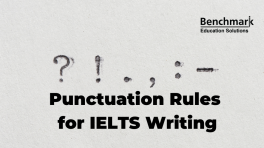IELTS Speaking Part 3
- 0 Comments


Time to find out about IELTS Speaking Part 3 Questions. This is the last opportunity to show the examiner your speaking skills…you got this!
In this part of the test, the examiner will ask you a wide range of questions related to the topic presented in IELTS Speaking Part 2.
Read more about the test and read a step-by-step guide to the most common topics. Try out some questions and answers created by our expert team of teachers and examiners. Finally, pick up some IELTS speaking tips and tricks for Part 3 and you will have everything you need to get practising.
Table of Contents
1. IELTS Speaking Test – Overview Parts 1-3
The IELTS Speaking test will consist of 3 parts and will last approximately 12-14 minutes. The examiner will introduce themselves and you will do the same. You will then be guided through the different parts of the test.
The test consists of 3 parts:
Speaking Part 1: Answer questions about you and topics you know
Speaking Part 2: Prepare and present a monologue
Speaking Part 3: Answer more complex questions about the monologue topic
The examiner is marking your speaking ability using the following criteria:
- Fluency & Coherence
- Lexical Resource
- Grammatical range and accuracy
- Pronunciation
Each area is worth 25% of the total speaking score. Time to train for IELTS Speaking Part 3 in more depth.
2. About IELTS Speaking Part 3
IELTS Speaking Part 3 will take about 4-5 minutes to complete. The topics you talked about in Part 2 will be closely related to the questions in part 3. Although you will not be given any time to prepare your answers, you will have a general idea of the topic.
The examiner will give you all the information you need and will direct the questions at you. In this part of the speaking exam, you should give more details than in Part 1. Typically, the questions ask you to consider:
- Expressing your opinion and justifying
- Making comparisons
- Considering the advantages and disadvantages
- Using a variety of tenses and grammar structures
- Adding additional information of examples
3. IELTS Speaking Part 3 – Test advice
Imagine you have talked about ‘an important journey’ during the second part of the test. You can expect to be asked questions about journeys, travel and transport in Speaking Part 3. If you have talked about ‘a celebration’ you can expect to talk about special events, birthdays or parties.
Whatever the topic, the questions will ask you to show that you can express your opinion, make comparisons, describe advantages and disadvantages, use a variety of structures and give detail.
Expressing your opinion and justifying
These questions require you to use opinion expressions. Try some of these variations of ‘I think.’
- Personally/ Personally speaking
- In my view/opinion
- It seems to me (that)
- I would say (that)
When giving your opinion – justify it. Why do you think that? What examples can you give?
Q: How does the weather affect people’s mood?
- Personally speaking, I think that the weather affects people more than they care to admit. I think that when the skies are grey and gloomy, it makes people feel a little depressed and when the sun comes out everybody has a more easy-going temperament. For instance, I think this has been proven in places where it is very dark in winter for months and the people suffer from adverse mental health.
Making Comparisons
These questions require you to make a comparison, often between different time periods.
- What do people wear at different times of the year?
Try to use some comparative expressions:
- While/Whereas/However/In contrast
- Both/Neither
- Better/Worse/More + adjective/Less + adjective
- On one hand/On the other hand
Again, don’t forget to justify your reasons! You could say:
- Because/due to/owing to/as
Considering the advantages and disadvantages
Using appropriate vocabulary will score you points. Try and paraphrase rather than using the same words.
- What are the advantages of travelling by air?
- What are the disadvantages of train travel?
| Advantage | Disadvantage |
|---|---|
| One benefit is… | One drawback is… |
| A positive aspect is… | A negative aspect is… |
| Another advantage is… | Another disadvantage… |
| The pros outweigh the cons | The cons outweigh the pros |
You can also use comparison language and examples to expand your answers.
Use a variety of tenses and grammar structures
The key is in the question – listen! If the question asks you about the past, present, future or requires a conditional…use it. The examiner will reward you for using a variety of tenses and complex grammar structures.
Let’s take a look at a question and the structures you could use:
Q: What would you do if you had more free time?
This is a conditional question!
A: If I had more free time, I would do more sports. I used to play football regularly, but nowadays I have let it slip and I don’t usually do a lot of exercise.
The answer includes a variety of structures including conditional, habitual past, present perfect and present simple.
Adding additional information and examples
When answering the question, try to give more details without the examiner prompting you. There are a number of phrases you can use to do this:
- In addition/Also/On top of that/Besides/As well as
- For example/ For instance/ Such as/ Like / Say
4. IELTS Speaking Topics Part 3
You can prepare some IELTS speaking topics in general before the exam. Don’t memorise your answers as you can’t predict the questions, but organise your ideas and make note of some key phrases. Click on the topics below to see some sample questions and answers for each:
It is a good idea to choose an IELTS speaking topic from Part 3 and make a list or visual map of all the words and phrases you think will impress the examiner for this topic.
5. IELTS Speaking Part 3 Questions and Answers
IELTS Speaking Question and Answer – Sample 1
Q1. Do you like travelling?
- Yes, I absolutely love it. There is nothing better than getting away for a break and letting your hair down. I have been to quite a few places in Europe and I also flew long-haul to America a few years ago. Travelling is the ultimate freedom that we have. If I had more time, I would travel all round the world.
Q2. Do you travel frequently?
- Not as often as I would like to but I manage to get away once or twice a year. This year, I have been to London for a long weekend and also my family and I went camping in the south of France for a week. In an ideal world, I would go globe trotting and visit all seven continents. I am grateful that I am able to travel a couple of times a year as not everybody is able to do that.
Q3. What type of transport do you use?
- I usually travel by metro in the city as it is the fastest and most comfortable way to travel if you have to use public transport. There is no point in driving in Paris because of the traffic jams and restrictions. I occasionally take a taxi if I am in a rush. The downside is that taxis are very expensive and you can still get stuck in heavy traffic.
Q4. How has transport changed?
- We are very lucky nowadays as public transport is fast and reliable and we can get to most places quickly. In the past, trains would have been steam operated and taken much longer to reach the destination. On the other hand, the cost of public transport has really spiralled and is far more expensive now than it was in the past.
IELTS Speaking Question and Answer – Sample 2
Q1. What is your own attitude to money?
- My feeling is that it is important to spend money and to save some. You never know when you will need funds in an emergency but on the other hand, it is rewarding to buy yourself something when you are studying or working hard. I have a good balance between spending and saving. For instance, I save 20% of my money and spend the rest.
Q2. What important advice about money can you give to children?
- I would recommend to children that they learn to save money from an early age. Even if it is a token amount, it will build up and they will learn the satisfaction of purchasing something with your own money. If they do some chores in the house, they can earn a bit of pocket money. Importantly, children should realise that money doesn’t grow on trees.
Q3. What is a good age for children to start forming their own opinion about clothes?
- The appropriate age for children to have a say in what they wear is probably about 9 or 10. A lot of children nowadays are really fussy about what they will wear but I think it is not that important until you are older. At 9 or 10, you might start to take an interest in fashion though. Nowadays, children seem to have more or an opinion on clothes whereas I don’t remember it being that important when I was growing up.
Q4. Do children mostly follow someone else or make their own choices?
- In my opinion, children usually copy another person rather than decide for themselves. It is natural, when you are young to emulate others, especially older siblings or friends. For example, my younger sister follows me around and copies what I do which is quite sweet really and she will become more individual when she grows up. By copying, children are learning social behaviours.
These answers include some advanced IELTS vocabulary – make a note of any appropriate words and phrases in your plan.
6. IELTS Speaking Part 3 – Tips and Tricks
These speaking part 3 tips and tricks will help you achieve a better score.
Don’t be too personal
Speak in general rather than basing your opinion only on your experience. If you are asked if having a healthy diet is important – don’t describe your diet, give a general opinion on the question and justify it. Some personal examples are fine!
Give enough detail
The questions in this part are more complex and therefore your answer should be. Keep talking until you feel you have justified your response. Look out for clues from the examiner that you have said enough such as a smile or a nod.
Speak slowly and clearly
Speak at a natural and steady pace. The examiner will be able to understand you clearly and it will give you time to formulate your opinion – no rushing.
Give yourself thinking time
If the examiner asks you a difficult question, give yourself some time to think by using an appropriate phrase like ‘I haven’t thought about that before’ or ‘That’s an interesting question.’
Paraphrase the question
Use the question to help form your answer. If the examiner asks you about the advantages of a healthy diet, you might say:
‘There are many benefits of eating healthily, such as…’
You are not copying the question exactly but using your own words. This is a good way to introduce the topic.
Include your opinion
There is no correct answer, so give your opinion! In this part of the exam the examiner expects you to express your opinion clearly and you will miss points if you don’t.
7. How to Practise IELTS Speaking Part 3
Make notes on a variety of subjects
Planning the topics will help you to prepare. Even if you don’t see that topic on the day, your brain will be practised in using appropriate vocabulary and useful phrases. You can apply lots of phrases to lots of topics.
Read lots of example IELTS speaking questions
Reading a variety of IELTS speaking questions will really help you practise. You are likely to hear very similar question types on the day of the exam. So, the more you read, the better prepared you will be.
Record Yourself
Using a variety of questions, record yourself answering IELTS Part 3 questions. When you listen, ask yourself if you:
- Speak clearly and coherently
- Use a variety of grammar structures
- Use vocabulary appropriate to the topic
- Give enough details / examples
Watch a high scoring IELTs student
By watching other students perform well is great IELTS speaking practice, you can learn techniques and vocabulary to improve your score.
Practice with an expert
Imagine practising a realistic IELTS test with an experienced tutor? You can! Book a time slot with one of our team and you will complete a trial test and receive detailed feedback to help you answer IELTS speaking questions. Book a practice test today!
8. IELTS Speaking Part 3 – FAQs
What happens in Speaking Part 3?
The examiner will ask you a number of questions generally related to the topic you discussed in the Part 2 Monologue. They are questions asking your opinion on the subject and you should give more detail than in Part 1, as they are more complex topics.
How long should my answers be in Part 3?
This part of the test will take 4-5 minutes and the examiner will ask you 4-6 questions. You should give a detailed answer to the question with your opinion, justification, examples and/or additional points of information.
What if I make a mistake or don’t understand the question?
You don’t always need to understand every word of every question. If you don’t understand the question, ask the examiner to repeat the question or even rephrase it if necessary. If you realise you have made a mistake, correct it. Don’t spend a long time searching for the perfect phrase or word. move on and speak naturally.
Do I have to include idiom phrases?
You don’t have to include idiom phrases to get a high score. If an idiom comes naturally and is appropriate for the topic – great! If not, focus on your grammar and general vocabulary. Be natural – throwing in idioms for the sake of it can sound practised.
Where can I get more help?
Book a speaking test simulation with our expert team!
What we offer:
- A realistic IELTS speaking test practice
- Familiarise yourself with topics (IELTS Speaking)
- Individualised feedback
- Score predictions
- Realistic evaluations
- Hints and tips to boost your speaking skills
- Common vocabulary subjects
Everything you need to achieve a score of 7… or more!!! Book your space now!















